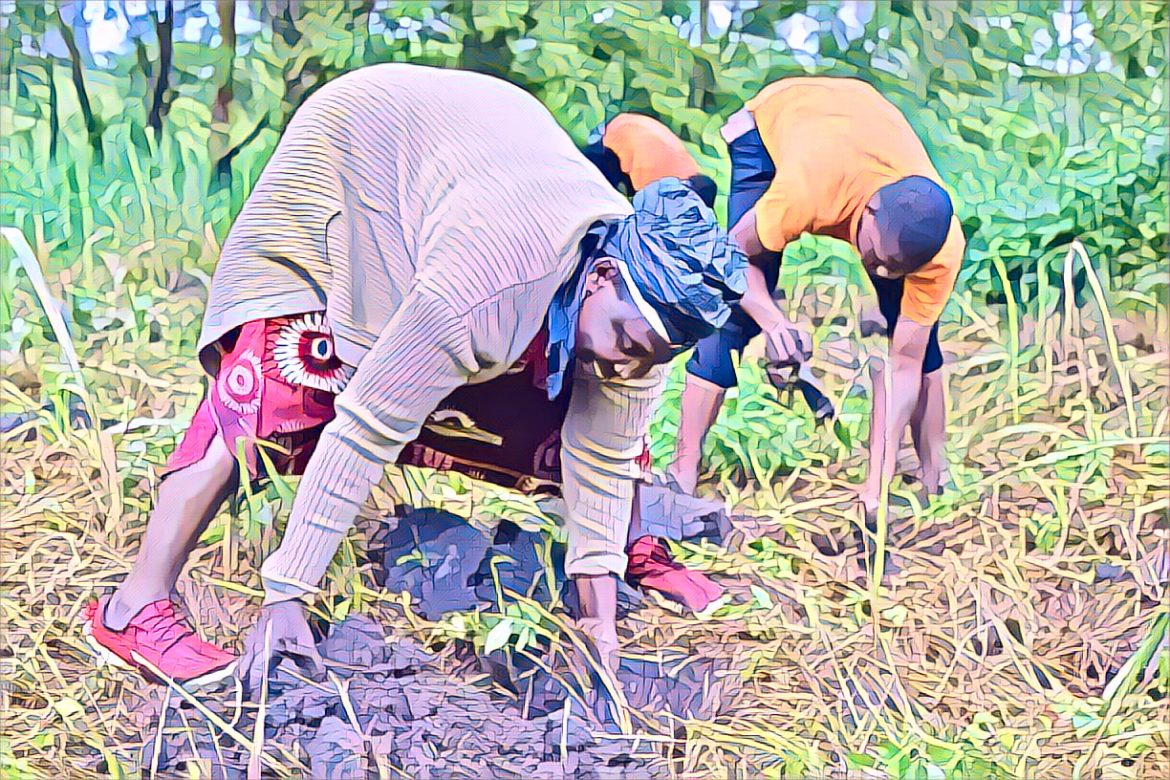The impact of climate change is becoming increasingly evident in the northern regions of Ghana, causing significant destruction and affecting the daily lives of thousands of people. The Upper East and West regions, in particular, are facing severe challenges due to declining water availability, recurrent droughts, rapid population growth, and decreasing vegetation. These environmental changes not only threaten the livelihoods of rural communities but also the broader economic stability of the area.
To address this urgent issue, the International Union for Conservation of Nature (IUCN) has launched the “Creating Lands of Opportunity: Transforming Livelihoods through Landscape Restoration in the Sahel” (LOGMe) project. This initiative, which also extends to Burkina Faso and Niger, is funded by the Italian Ministry of Environment and Energy Security and is aimed explicitly at combating desertification and restoring ecological balance.
The project is collaboratively supported by Ghana’s Environmental Protection Agency (EPA), the Council for Scientific and Industrial Research – Savannah Agricultural Research Institute (CSIR-SARI), and A Rocha Ghana. It targets eight communities across the Upper East and West regions, such as Awaradone, Yameriga, Gbango, and Tarikom in the Upper East, and Nanchala and Sakalu in the Upper West.
The LOGMe project has already yielded significant benefits for the communities involved. Notably, it has facilitated the creation of seven hectares of vegetable farms equipped with solar-powered mechanized boreholes. This development has been crucial, allowing women farmers to engage in dry-season farming, which provides them with a steady income and improves community food security.
Moreover, the project has successfully restored over 1,700 hectares of community land. By training local farmers in sustainable practices such as beekeeping, LOGMe has diversified economic opportunities and enhanced ecological knowledge among the residents. Additionally, about 2,500 households have benefited from the distribution of improved cookstoves, which significantly reduce the need for charcoal and wood, thereby preserving local forest resources.
The installation of eight solar-powered boreholes across the communities has been pivotal in providing clean drinking water and supporting irrigation during the dry seasons. This initiative not only improves the health and well-being of the community members but also supports agricultural activities year-round.
Education and training have also been a focus of the LOGMe project. In particular, some women in the communities have been trained in soap making, turning it into a viable business opportunity that complements their agricultural activities. This approach not only boosts the local economy but also empowers women, giving them a more significant role in community development.
During a recent four-day visit to evaluate the project’s impact, Dorcas Owusuaa Agyei, the National Coordinator for LOGMe, interviewed several beneficiaries who shared how these initiatives had transformed their lives. The provision of solar-powered boreholes, for instance, has allowed many women to engage in vegetable farming outside the traditional farming season, generating additional income for their families.
Looking ahead, the LOGMe project is not just about short-term gains but also about ensuring long-term sustainability. The Regional Project Coordinator, Félicité Chabi Gonne, emphasized the importance of community ownership and maintenance of the infrastructure provided. She encouraged the beneficiaries to view these resources as long-term investments in their community’s health and economic prosperity.
Additionally, Godwin Evenyo Dzekoto from A Rocha Ghana highlighted the project’s focus on renewable energy solutions. By reducing the reliance on traditional biomass fuels, the initiative not only conserves natural resources but also alleviates the physical and financial burden on the women of these communities, who traditionally bear the responsibility for collecting firewood.
Feedback from the community has been overwhelmingly positive. Beneficiaries like Avombon Abang expressed relief at no longer having to rely on unpredictable and scarce firewood sources. The provision of efficient cookstoves has simplified their daily routines significantly.
Similarly, Christabel Awimbila shared how the new charging center in Gbango had drastically reduced the inconvenience and cost of charging mobile phones, a small change that has a significant impact on connectivity and access to information.
The LOGMe project stands as a testament to the power of collaborative environmental restoration and community development initiatives. By blending modern technology with traditional knowledge, the project not only addresses immediate ecological and economic challenges but also lays the groundwork for sustainable development in Ghana’s northern regions. As these communities continue to nurture and expand upon the foundations laid by LOGMe, their success stories offer valuable lessons and hope for other regions grappling with similar environmental challenges.
Source: Graphic Online





1 comment
Thanks for sharing. I read many of your blog posts, cool, your blog is very good.